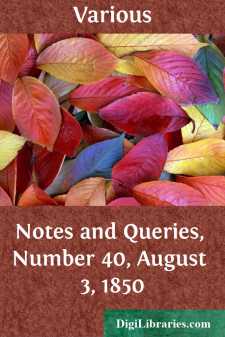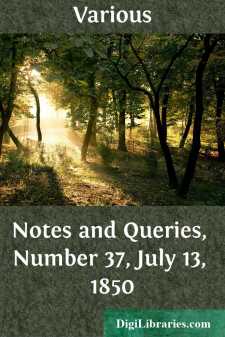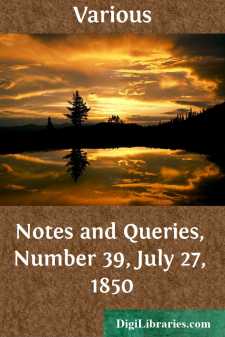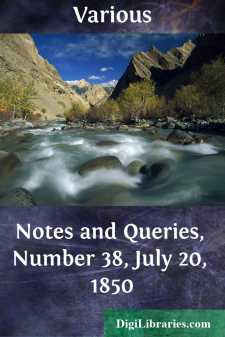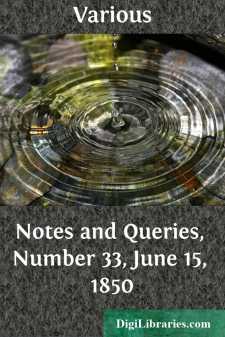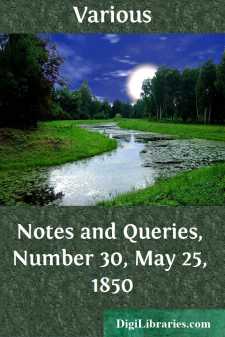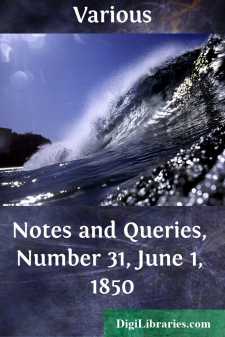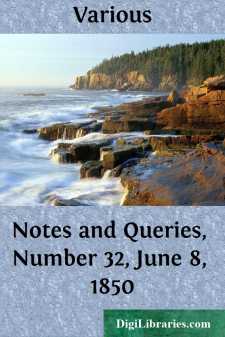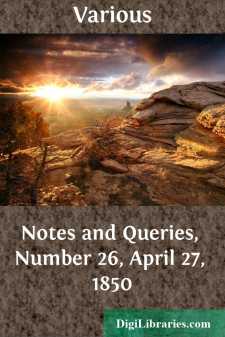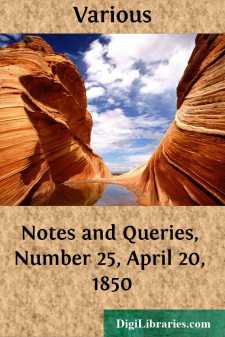Categories
- Antiques & Collectibles 13
- Architecture 36
- Art 48
- Bibles 22
- Biography & Autobiography 813
- Body, Mind & Spirit 142
- Business & Economics 28
- Children's Books 17
- Children's Fiction 14
- Computers 4
- Cooking 94
- Crafts & Hobbies 4
- Drama 346
- Education 46
- Family & Relationships 57
- Fiction 11829
- Games 19
- Gardening 17
- Health & Fitness 34
- History 1377
- House & Home 1
- Humor 147
- Juvenile Fiction 1873
- Juvenile Nonfiction 202
- Language Arts & Disciplines 88
- Law 16
- Literary Collections 686
- Literary Criticism 179
- Mathematics 13
- Medical 41
- Music 40
- Nature 179
- Non-Classifiable 1768
- Performing Arts 7
- Periodicals 1453
- Philosophy 64
- Photography 2
- Poetry 896
- Political Science 203
- Psychology 42
- Reference 154
- Religion 513
- Science 126
- Self-Help 84
- Social Science 81
- Sports & Recreation 34
- Study Aids 3
- Technology & Engineering 59
- Transportation 23
- Travel 463
- True Crime 29
Sort by:
by:
Various
NOTES. TRANSLATIONS OF JUVENAL—WORDSWORTH. Mr. Markland's ascertainment (Vol. i., p. 481.) of the origin of Johnson's "From China to Peru," where, however, I sincerely believe our great moralist intended not so much to borrow the phrase as to profit by its temporary notoriety and popularity, reminds me of a conversation, many years since, with the late William Wordsworth, at which I...
more...
by:
Various
NOTES THE AUTHOR OF THE "CHARACTERISTICS." Lord Shaftesbury's Letters to a young Man at the University, on which Mr. SINGER has addressed to you an interesting communication (Vol. ii., p. 33.), were reprinted in 1746 in a collection of his letters, "Letters of the Earl of Shaftesbury, author of the Characteristicks, collected into one volume: printed MDCCXLVI." 18mo. This volume...
more...
by:
Various
NOTES. ETYMOLOGY OF "WHITSUNTIDE" AND "MASS". Perhaps the following Note and Query on the much-disputed origin of the word Whitsunday, as used in our Liturgy, may find a place in your Journal. None of the etymologies of this word at present in vogue is at all satisfactory. They are— I. White Sunday: and this, either— 1. From the garments of white linen, in which those who were at...
more...
by:
Various
NOTES. WHAT IS THE MEANING OF "DELIGHTED," AS SOMETIMES USED BY SHAKSPEARE. I wish to call attention to the peculiar use of a word, or rather to a peculiar word, in Shakspeare, which I do not recollect to have met with in any other writer. I say a "peculiar word," because, although the verb To delight is well known, and of general use, the word, the same in form, to which I refer, is...
more...
by:
Various
DR. WHICHCOTE, MICHAEL AYNSWORTH, AND LORD SHAFTESBURY. Not less remarkable and interesting than the publication of Dr. Whichcote's Sermons by the noble author of the Characteristics, is a posthumous volume (though never designed for the press) under the following title:— "Several Letters written by a Noble Lord to a Young Man at the University. "Quo semel est imbuta recens servabit...
more...
by:
Various
NOTES DR. JOHNSON AND DR. WARTON. Amongst the poems of the Rev. Thos. Warton, vicar of Basingstoke, who is best remembered as the father of two celebrated sons, is one entitled The Universal Love of Pleasure, commencing— "All human race, from China to Peru, Pleasure, howe'er disguised by art, pursue." &c. &c. Warton died in 1745, and his Poems were published in 1748....
more...
by:
Various
OUR SECOND VOLUME. We cannot resist the opportunity which the commencement of our Second Volume affords us, of addressing a few words of acknowledgment to our friends, both contributors and readers. In the short space of seven months, we have been enabled by their support to win for "NOTES AND QUERIES" no unimportant position among the literary journals of this country. We came forward for the...
more...
by:
Various
NOTES. PRESENCE OF STRANGERS IN THE HOUSE OF COMMONS. In the late debate on Mr. Grantley Berkeley's motion for a fixed duty on corn, Sir Benjamin Hall is reported to have imagined the presence of a stranger to witness the debate, and to have said that he was imagining what every one knew the rules of the House rendered an impossibility. It is strange that so intelligent a member of the House of...
more...
by:
Various
NOTES NICHOLAS BRETON. Like Mr. COLLIER (No. 23. p. 364.), I have for many years felt "a peculiar interest about Nicholas Breton," and an anxious desire to learn something more of him, not only from being a sincere lover of many of his beautiful lyrical and pastoral poems, as exhibited in England's Helicon, Davison's Poetical Rhapsodie, and other numerous works of his own, and from...
more...
by:
Various
NOTES. ROGER BACON: HINTS AND QUERIES FOR A NEW EDITION OF HIS WORKS. Victor Cousin, who has been for many years engaged in researches on the scholastic philosophy, with the view of collecting and publishing such of its monuments as have escaped the diligence of scholars, or the ravages of time, has lately made the discovery in the library at Douay of a copy of an inedited MS. of Roger Bacon, entitled...
more...


